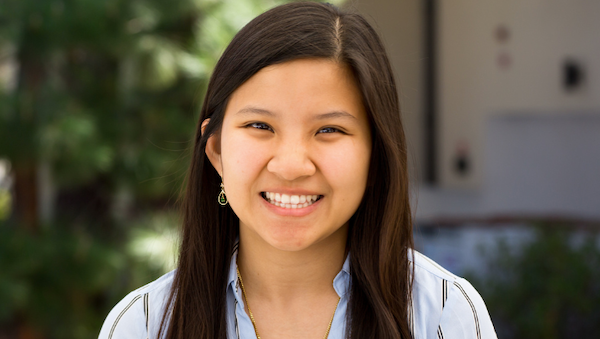My Nguyen

A Mentor in the Making
When we sat down with My (pronounced “Me”) Nguyen, she had just finished her first year as a graduate student in the master’s program at Rollins School of Public Health.
My’s story with identity spaces started long before her career at Emory. While an undergrad at Stanford, she joined the Stanford Asian American Activities Center (A3C) and began her journey as an activist and mentor for others. She found her community at the center and, more important, she found her identity.
“Coming to college, it felt very ostracized because I was a first-generation, low-income student. My parents didn’t go to college, so coming from Memphis, Tennessee, which didn’t have a large Asian American population, I wanted to find that identity in [college],” My said. “And, through my undergrad studies, working at A3C, I found it.”
When My heard about the application for student ambassadors at Emory, she thought, “I want to be a part of this process as well.”
A semester later, she is eager to see the identity space come to life for all the APID/A students who will find community there.
“I envision the APID/A space to be a balance between activism and social gatherings,” My said. “I think [the space] will be welcoming—in terms of meeting students where they’re at with their knowledge and if they do want to get involved in activism or really just find a home away from home.
“That was the appeal for finding my community in undergrad,” she added.
Concurrent with her studies, My serves as an Office for Undergraduate Education (OUE) Graduate Academic Advisor in Residence to students, continuing to advocate for them. That’s what matters for her because mentorship has been so impactful in her own life.
Melissa Redwood, assistant director in the Office for Racial and Cultural Engagement (Office for RACE), has served as a mentor and guide for My’s ambassadorship in the APID/A identity space. Representation on staff means that voices are being acknowledged, according to My.
“Melissa advocates for students and makes sure APID/A voices are heard on campus,” she said.
My looks forward to a time when DEI efforts aren’t efforts, but rather just are. For now, she’s committed to speaking and fighting as an APID/A member. “Listening to community voices is better rather than assuming what they need,” My said.
Until the space formally opens in fall 2021, My Nguyen has found her community virtually and waits eagerly for the time when she and others can meet and collaborate and find “their home away from home.”